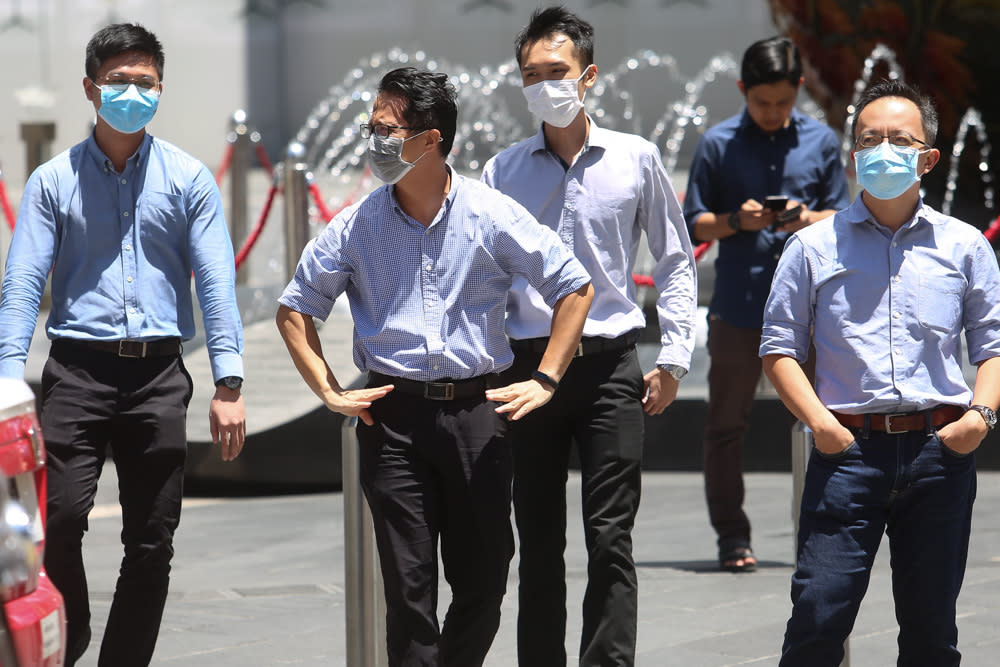Statistics Dept survey indicates as many as 2.1 million could be out of work in Malaysia because of Covid-19, says economist

KUALA LUMPUR, April 10 — The number of jobs lost to the Covid-19 crisis to date is likely to be around 2.1 million in Malaysia, economist Muhammed Abdul Khalid said.
The former economic adviser to Tun Dr Mahathir Mohamad made this estimation following survey findings by the Department of Statistics Malaysia (DOSM) released yesterday.
From the 170,000 workers polled, half of those self-employed reported to be out of work while up to a third said their income dropped by some 90 per cent.
“If the findings are to be representative for the whole of Malaysia, the number of local workers unemployed is now at 16 per cent, that means out of the 12.8 million workers, 2.1 million have lost a source of income,” Muhammed said.
The collateral impact could also be bigger if it takes into account household sizes, he added.
“Say if one worker has four family members to feed, that means eight million Malaysians are now in dire condition,” he said. “This is unprecedented.”
Muhammed and several other economists have been critical of the Perikatan Nasional administration’s response to the Covid-19 pandemic, calling its fiscal measures conservative, “stingy” and inadequate to assist the country’s most vulnerable workers.
In the last two weeks, Prime Minister Tan Sri Muhyiddin Yassin unveiled three stimulus packages totalling RM266 billion.
A large chunk of it is in the form of one-off cash assistance and wage subsidies, ranging from RM600 to RM1,600 per worker and households in the lower and middle income brackets.
But critics alleged the aid excluded those most hit by the movement restriction measures enforced to contain the spread of Covid-19.
Informal sector workers, especially those self-employed, are among those left out because they exist outside the social security system used to identify and distribute aid.
Subscription of the self-employment social security scheme by Perkeso remains low, according to official data.
For example, roughly just 50,000 out of the more than 300,000 e-hailing and cab drivers have voluntarily signed up for the scheme.
A majority of these self-employed workers were also found to have little to no savings at all.
The DOSM survey, conducted between March 23 to 31 March, during the second week of MCO phase one, showed half of them have savings enough only to last two weeks, while only 28 per cent said they had enough to last two months.
“This is why many economists suggested a monthly cash assistance for these workers and those self-employed like Mak Cik Kiah, and not just a one-off help,” Muhammed said.
“It is your responsibility to the people.”
Muhammed was among proponents who suggested all workers be given RM1,200 in monthly assistance for up to six months, as the Covid-19 crisis unfolds.
Such a programme, he argued, could easily be funded by more borrowing, in particular from the government’s foreign reserves, said to be around RM400 billion.
Under the Prihatin packages, all households earning RM4,000 and RM8,000 and below will receive a one-off handout worth RM1,000 and RM,1600 respectively. For singles, those earning RM2,000 below will receive a one-off handout of RM800.
“If the proposal that employers be helped for three months (in the form of wage subsidies worth RM1,200 for each worker for three months), then it is only fair that the same be done for the self-employed,” the economist added.
The special online survey sought to examine the effects of the Covid-19 pandemic on the economy and Malaysians. The department polled 168,182 respondents throughout the country.
Staff in government-linked corporations (GLCs) and multinational companies (MNCs) tend to have more savings and are better prepared than typical private sector workers if Malaysia is further locked down to contain Covid-19, the DOSM poll found.
The country is currently at the tail-end of a four-week movement control order (MCO) in which all non-essential activities must temporarily pause, and the government has unveiled an economic stimulus package to stave off the financial pain including cash handouts to lower-income Malaysians or by providing wage subsidies to employers.
Malaysians are anticipating news today on whether the government will extend the MCO for a second time to help the nation slow the spread of Covid-19.
Related Articles Uruguay transports Australians, New Zealanders from virus-hit cruise ship LBS Foundation gifts PJ police officers 2,000 face masks, 600 bottles of hand sanitiser WHO beri amaran, tarik balik PKP ‘terlalu awal’ boleh bawa padah



